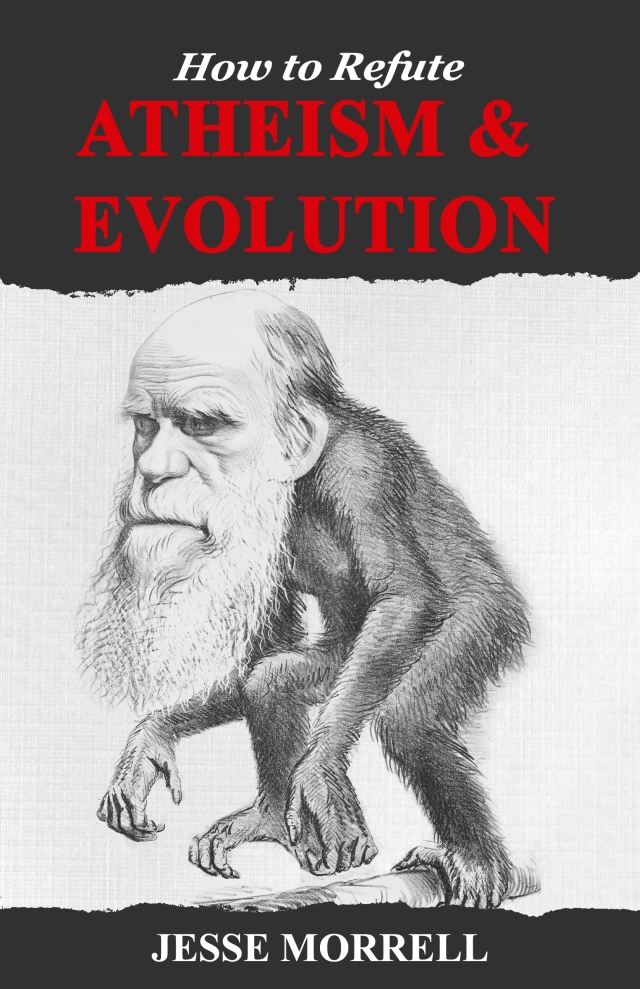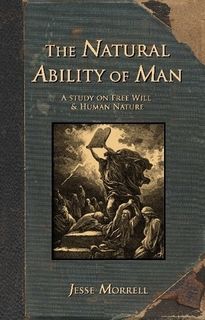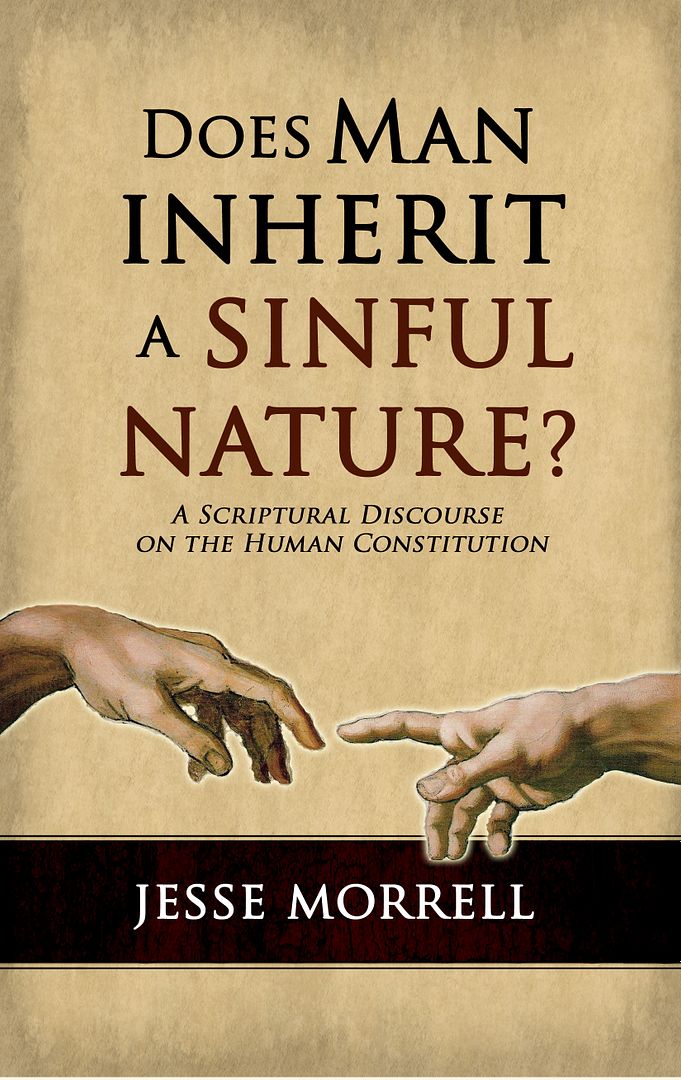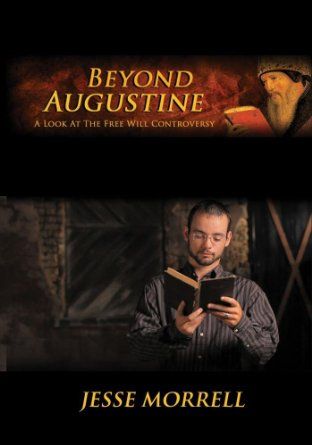L. D. MCCABE ON HOW THERE WERE NO OLD TESTAMENT PROPHECIES OF JUDAS’ BETRAYAL

Taking from Divine Nescience & Foreknowledge:
To Order: Click Here
The Savior said of himself (Matt. xxvi, 24), “The Son of man goeth as it is written of him [or, as Luke expresses it, “as it was determined of him”; but woe unto that man by whom the Son of man is betrayed! it had been good for that man if he had not been born.” Now, consider the hearing of this last declaration of the Savior concerning his betrayal, in the light of the theory that the treachery of Judas was necessary to the death of Jesus and the consummation of the atonement. The death of Jesus being not only foreknown but foreordained, then, if the betrayal by Judas was necessary to that death, that betrayal itself must have been foreordained likewise. How, then, could it have been better for Judas never to have been born? That could be true for no other possible reason than that by his betraying his Lord he incurred the divine displeasure and condemnation. But if that act was necessary to the consummation of the atonement, and was therefore foreordained, we are driven to the blasphemous conclusion that God holds a man guilty and damnable for an act that was foreordained as necessary to the fulfillment of his own purposes. We thus demonstrate that the instruments of the Savior’s death, the wicked human agencies involved therein, were all needless. Their doings were all as completely contingent and avoidable as any sins ever were. The theory that the betrayal was in the original plan involves the supposition that God can do evil that good may come, that Christ was hypocritical in his treatment of Judas and in his utterances to and concerning him. This supposition is so monstrous that any theory which involves it must be repugnant to the moral consciousness of mankind.
The words that I speak unto you are spirit and are life. But there are some of you that believe not. For Jesus knew from the beginning who they were that believed not, and who should betray him.” (John vi, 63, 64.) Was the unbelief of those individuals foreordained? Certainly not. Their unbelief was through their own volitions. It is not said that Jesus knew from the beginning who they were that would not believe, but “who they were that believed not.” But the words, “who they were who would not in the future believe,” are required for this text, in order to make it lend support to the theory of absolute divine foreknowledge. The beginning spoken of in the text could only date back to the incipiency of the unbelief in the minds of his disciples. The term “beginning” must have a definite signification, and in that connection this is the only pertinent signification. In speaking of divorces Christ said, “From the beginning it was not so”; meaning from the beginning of the mar- riage institution. “They who were eye-witnesses from the beginning delivered unto us,” says Luke. And so Christ knew the unbelief of the persons referred to from the beginningas soon as they began to doubt, or failed to believe, but not before. And if he knew from the beginning who believed not, who received not the life and spirit of his teachings, in like manner he knew who of the number should betray him: he knew him as soon as the conception of the crime was first entertained. He discovered the treachery in its incipiency. The betrayal did not proceed from foreordination, nor from a constraint to fulfill prophecy, but from an immediately preceding unbelief, vitiating the character, corrupting the nature, weakening the will, and preparing it for that fearful deed. Such rapid demoralization of a once noble nature, going on in full view of Christ, was ample ground for inferential knowledge respecting that particular individual among the small number of the disciples who should betray him. Jesus was a discerner of all hearts and the intents of all hearts. The act of Judas was, we claim, neither foretold nor foreknown prior to the formation of his purpose to betray his Divine Master. When that purpose was forming in the heart of Judas the Omniscient Savior discerned it, and when it was actually formed he both knew and foretold its consummation, but not before. If Christ knew all the time, from the moment that he commissioned Judas, that he was going to betray him to his foes, might we not suppose that he would have given some slight intimation of it to some of his friends much earlier than he did; and that he would also have provided himself against such a catastrophe according to the instinctive laws of self-preservation? And why did he not magnanimously rescue a poor erring mortal from temptations he knew he would certainly succumb to? Luke says (Acts i, 25) “that Judas lost his ministry and apostleship by transgression.” In good faith he had been put into the ministry by Jesus Christ. “He was numbered with us, and obtained part of this ministry,” says Peter. The disciples prayed, “Thou, who knowest the hearts of all men, show whether of these two thou hast chosen, that he may take part of this apostleship, from which Judas by transgression fell.” We conclude, from a careful study of the subject, that Christ chose Judas because at the time of choosing him the prospect was flattering that he would prove himself to be a successful man in disseminating the pure doctrines of his everlasting Gospel.
When Jesus said, “Will ye also go away?” and when Peter replied, “We are sure thou art the Son of the living God,” Jesus answered, “Have not I chosen you twelve, and one of you is a devil?” (John vi, 70.) This evidently is the language and exclamation of great surprise. And this implies that Christ chose Judas in good faith, supposing him to be a good man. But Judas became a devil after his appointment as a disciple. For if Christ knew Judas to be a devil at the time he selected him to be one of his intimate friends and great ambassadors, or if he then knew that he would certainly become a devil, Peter could have inquired, and pertinently enough, “Why, then, did you choose so unworthy an instrument, so ungenuine a man?” But Dean Alford remarks on this passage that the translation of diabolos is much stronger than the facts will warrant; and this seems to be worthy of consideration, as this word is defined adversary, accuser, slanderer. In 1 Timothy iii, 1, it is translated slanderer, and in 2 Timothy iii, 3, and Titus ii, 3, simply false accuser.
A collation of the reports of the Last Supper shows the varied efforts of Jesus to deter Judas from the perpetration of his contemplated crime. And no Arminian, at least, can doubt that, up to the last moment in the tragedy, Christ did most sincerely desire that Judas should desist, and that Judas himself could have repented, changed his purpose, abandoned his folly, and snatched himself from eternal infamy. But if Christ knew from eternity that Judas would betray him, where was the consistency or the propriety of his earnest efforts to rescue him? “Even honest men,” says Cicero, “do not give their friends notice of impending misfortunes which they can not avoid or avert.” The prediction of an evil is only beneficial when we can point out some means of avoiding it.
“The Pharisees went out, and held a council against him, how they might destroy him. But when Jesus knew it he withdrew himself from thence.” (Matt. xii, 14.) This implies that Jesus did not know of this meeting before it was actually planned. We read (Matt. xxvi, 14-16): “Then one of the twelve, called Judas Iscariot, went unto the chief priests, and said unto them, What will ye give me, and I will deliver him unto you? And they covenanted with him for thirty pieces of silver. And from that time he sought opportunity to betray him.” The chief priests and scribes and elders had consulted how that they might take Jesus by subtlety and kill him. “Then entered Satan into Judas, surnamed Iscariot, being one of the twelve. And he went his way, and communed with the chief priests and captains, how he might betray him unto them . . . And he promised and sought opportunity to betray him unto them in the absence of the multitude.” (Luke xxii, 3, 4, 6.) And immediately after this Jesus announced to his disciples the sad and astounding fact that one of their brethren and fellow-apostles was about to betray him. “One of you,” said he, “who eateth with me, shall betray me.” “The hand of him who betrayeth me is with me on the table.” “He that dippeth his hand with me in the dish, he shall betray me.” That is, one of you has formed a purpose to betray me into the hands of my enemies. “And, supper being ended [rather, having begun], and the devil having now put it into the heart of Judas Iscariot, Simon’s son, to betray him,” we are told that “Jesus was troubled in spirit, and testified and said, Verily, verily, I say unto you that one of you shall betray me.” (John xiii, 2, 21.) He then gave the sop to Judas, and “after the sop Satan entered into him.” Judas had voluntarily cherished the thought suggested to him by an evil spirit, and this had paved the way for Satan to “enter into him:” otherwise the fiend never could have gained such an entrance. He then deliberately went away to the chief priests, pondering that heartless and frightful villainy, and proposed to them to betray into their hands his Divine Lord and Master. He then planned how he might do it conveniently and successfully, in the absence of the people.
This betrayal is the blackest spot on the blackest page of all human history. It is the most inexplicable of all historic problems. But there was no necessity for Judas to betray Christ. He might have desisted from the treacherous deed had he so willed. Jesus did most earnestly deprecate the course he was then contemplating. He announced in various impressive forms the amazing fact that one of his chosen friends and associates was about to betray him: “Woe to that man by whom the Son of man is betrayed.” “Behold the hand of him that betrayeth me is with me on the table. Betrayest thou the Son of man with a kiss?” How could Christ pronounce these most solemn words, and put forth these earnest efforts to rescue Judas, in good faith, if at the same moment he was infallibly certain that he would, after all, basely betray him? To select a frail man, full of weaknesses and inherited moral imbecilities, for a mission for which he was wholly unfitted, and then to subject him to temptations which he knew he would not, as a matter of fact, manfully withstand, and yet to pursue him with earnest efforts to rescue him from the commission of the deed, seems to be so unnatural and shocking that it is almost unpardonable to allude to it even as a possibility.
The words so frequently used in the Scriptures, “that it might be fulfilled,” very often signify that we have here only another illustration of something uttered on a different occasion; or that the language of Scripture here finds a pertinent application; as we often say, in like cases, “The words of Shakespeare are thus fulfilled,” or, “Here is another illustration of the saying so common among us,” recognizing at the same time that the event referred to is a mere coincidence. Dr. Nathaniel West writes: “Everywhere through the Scriptures the catastrophes of later date are described in symbolical language drawn from the literal facts of earlier times. For example, Jeremiah describes the ruins of the Jewish state, under Nebuchadnezzar, in terms of Chaos: ‘I beheld, and, lo, the earth was without form and void, and the heavens, they had no light.’ Isaiah describes it in terms of the Deluge: ‘The waters shall overflow your hiding-place.’ The language that describes the judgment on Jerusalem portrays the end of the present dispensation.” Albert Barnes says that the phrase, “that it might be fulfilled,” sometimes means, not that the passage was intended to apply to the particular thing or event spoken of, but that the words do aptly and appropriately express the thing referred to, and may be applied to it. Dr. S. T. Bloomfield says that “this Scriptural expression sometimes means that such a thing so happened that this or that passage would appear quite suitable or applicable to it.” Moses Stuart says that “the New Testament writers often use Old Testament phraseology, which originally was applied in a very different connection. And they do this because such phraseology expresses, in an apt and forcible manner, the thought which they desired then to convey.”
We cite the following illustrative examples: Isaiah says, “And he said, Go and tell this people, Hear ye indeed, but understand not; and see ye indeed, but perceive not. Make the heart of this people fat, and make their ears heavy, and shut their eyes; lest they see with their eyes, and hear with their ears, and understand with their hearts, and convert, and be healed.” “This noted prophecy,” observes Mr. Stuart, “about the blindness and obduracy of the Jews, had a true fulfillment before the Babylonish captivity, but it was again fulfilled in the times of our Savior. But though he had done,” says John (xii, 37-40), “so many miracles before them, yet they believed not on him; that the saying of Esaias the prophet might be fulfilled which he spake, Lord who hath believed our report?”
Therefore they could not believe, because that Esaias said again, “He hath blinded their eyes, and hardened their hearts; that they should not see with their eyes, nor understand with their heart, and be converted and I should heal them.” They believed not on the Savior, and the consequent blindness and obduracy, brought upon them as a punishment for (or as a result of) disobedience to known duty and truth, furnished but another illustration of that memorable case of divine displeasure spoken of by Isaiah, and with which the Jews were so familiar. And this instance of retributive blindness and hardness would be rendered the more impressive by associating it with an earlier and memorable example of the judgment of an offended deity coming upon a disobedient people. That is, what the prophet had said of the Jews of his day, Christ considered as applicable to them in his own times. “From the wicked,” says Job, “their light is withholden”; and “For thou hast hid their heart from understanding.” Light persistently rejecteddarkens the mind and lessens its susceptibility thereto.
Scholars no longer question the frequent use, in an ecbatic sense, of the particle translated that; and, therefore they very often translate the phrase under consideration “so was fulfilled,” or “thus was fulfilled.” This Greek particle often means so that or that merely. It is frequently used not as expressive of design or purpose, even when it refers to the most explicit of the prophecies. And therefore in Matt. ii, 23, we should read “And he came and dwelt in a city called Nazareth, so that it was fulfilled which was spoken by the prophet, He shall be called a Nazarene.” Matthew (ii, 14) says that Joseph “took the young child and his mother by night, and departed into Egypt; and was there until the death of Herod, that it might be fulfilled which was spoken of the Lord by the prophet, saying, Out of Egypt have I called my son.” But the Scripture to which Matthew here refers and quotes, has no reference whatever to Christ. Hosea (xi, i) speaks simply of God calling his son out of Egypt. The end proposed by Joseph and the end accomplished by staying in Egypt, were not the fulfillment of these words of Hosea, “When Israel was a child then I loved him and called my son out of Egypt.”
Dr. Edward Robinson (Greek Lexicon of New Testament) says that this frequent phrase or a similar one is used as a formal quotation, and implies “that something took place, not in order that a prophecy might be fulfilled, but so that it was fulfilled; not in order to make the event correspond to the prophecy, but so that the event would and did correspond to that prophecy. The phrase is often used to express historical or typical parallelisms.” He then gives a long list of passages in which this phrase must be so construed. For example, “If I had not done among them the works which none other man did, they had not had sin; but now have they both seen and hated both me and my Father. But this cometh to pass that the word might be fulfilled that is written in their law, They hated me without a cause.” (John xv, 24, 25.) But the Scripture to which reference is here made is Psalm xxxv, 19: “Neither let them wink with the eye that hate me without a cause.” Again (John xix, 36): “These things were done that the Scripture should be fulfilled, A bone of him shall not be broken.” The reference here is to Psalm xxxiv, 19, 20. “Many are the afflictions of the righteous, but the Lord delivereth him out of them all. He keepeth all his bones, not one of them is broken.”
Again, “That the saying of Jesus might be fulfilled, which he spake, signifying what death he should die.” The reference here is to Matt. xx, 18. “Behold, we go up to Jerusalem; and the Son of man shall be betrayed unto the chief priests, and unto the scribes, and they shall condemn him to death and shall deliver him to the Gentiles to mock, and to scourge, and to crucify him.” And hence, John xviii, 32, cited above, should be rendered “so that was fulfilled the saying of Jesus.” After giving this list of quotations Dr. Robinson says that such passages place the ecbatic use of the phrase in question “beyond any reasonable doubt.” He affirms too that “those Biblical critics, who insist on the telic sense of the word rendered that (ina) in all casesthat is, those who maintain that the later event was fixed and predestined and foreordained by the prophecy, to which reference was madenot only introduce a new element of interpretation, but also destroy the force of the language.”
The telic use of this word marks the final end or purpose, to the end that or in order that. The ecbatic use marks simply the event, the result, or upshot of an action, as expressed by the words so that or so as that. The telic use implies purpose, determination, prediction, and foreordination, while the ecbatic use implies only consequence, parallelism, application, or mere illustration. The telic use of this particle corresponds exactly with the theory suggested in this book; namely, that the minds of prophets in uttering prophecy and the minds of instruments in fulfilling prophecies are placed, through supernatural agency, under the action of the law of cause and effect. When, therefore, the connection in the Scriptures requires the telic sense or force, then the phrase in question is to be translated “in order that it might be fulfilled,” but not otherwise.
This well established rule of interpretation helps to explain many Bible texts which have occasioned great perplexity and incertitude to exegetical writers. Take, for example, the passage, “I know whom I have chosen: but that the Scripture may be fulfilled, He that eateth bread with me hath lifted up his heel against me.” (John xiii, 18.) The Scripture to which reference is here made is Psalm xli, 9: “Yea, mine own familiar friend, in whom I trusted, which did eat of my bread, hath lifted up his heel against me.” Christ here applies to Judas that which David had applied to Absalom. The case is so manifest that the particle in question, that, is not here used in a telic sense that Albert Barnes says, “It is difficult to tell whether the text has any reference whatever to Judas Iscariot. Dr. Robinson says that the particle translated that in this passage must evidently be taken in the ecbatic sense. And if the words “that it might be fulfilled,” in Matthew ii, 15, as already shown, refer to a text of Scripture, which undeniably and confessedly has no reference at all to Jesus Christ, we are allowed to assume, there being no reason to the contrary, also that in this text they refer to a passage of Holy Writ which may contain no prophetic reference to Judas Iscariot. The application of these words by the inspired writer to Judas, is no proof that he was referred to in the prophecy.
Again, in the passage John xvii, 12, “None of them is lost save the son of perdition, that the Scriptures might be fulfilled.” The phrase, “the son of perdition,” means one who has been given over to destruction. The Scripture to which reference is here made is probably Psalm cix, 8, “Let his days be few, and let another take his office.” Adam Clarke translates the text under consideration “The Scripture is thus fulfilled.” He also translates John xii, 38: “Thus the word of the Lord was fulfilled.” He says the Scripture thus fulfilled was spoken of the treachery of Ahithophel (Psalm xli, 9,) and the rebellion of Absalom was illustrated in the treachery of Judas, and that “these Scriptures, though spoken of others may be appropriately and forcibly applied to him.” He also remarks that “the treachery of Judas was not the effect of prediction, for the said prediction related to a different case; but as this instance was of the same nature with that of the other, to it the same Scriptures were applicable, and therefore were so applied.” Dean Alford says, that “these words were in the plural number, and referred to all the enemies of God and of righteousness, but were here applied to Judas Iscariot, he being of such a character in an eminent sense and degree. But the change here from the plural number to the singular proves that John used the quotation in the ecbatic sense and not in the telic. John xiii, 18, therefore, in the light of this criticism, would read, if our English idiom be substituted for that of the Hebrew, “I speak not of you all; I know whom I have chosen; but thus is the Scripture fulfilled, He that eateth bread with me hath lifted up his heel against me.” And John xvii, 12, would read, “Those thou gavest me I have kept, and none of them is lost save the son of perdition. Thus the Scripture is fulfilled [or, again, illustrated). Let his days be few, and let another take his office.” Again, take Matthew xxvii, 9: “Then was fulfilled that which was spoken by Jeremy the prophet, saying, And they took thirty pieces of silver, the price of him that was valued, whom they of the children of Israel did value, and gave them for the potter’s field, as the Lord appointed me.” (note: The quotation here is from Zechariah (xi, 12, 13) and not from Jeremiah. But Meade, Bishop Kidder, and Hengstenberg think that Zechariah borrowed this statement from some prophecy that was current among the Jews, as being an original prediction of Jeremiah. The error of this reference to Jeremiah instead of Zechariah, Albert Barnes and Dr. Whedon think, was a mistake in transcribing. The custom was, in quoting an author, to put down in writing only a few of the first letters of the name of the prophet referred to; and hence the mistake in transcribing would have-been most easily made. Dr. R. Payne Smith, the present learned Dean of Canterbury, says that Jeremiah’s name is here used as equivalent to the whole circle of the prophets, on account of the prominence ascribed by the Jews to him among the prophets.)
“This quotation,” says Dean Alford, “is very different from the Septuagint, and not much more like or in harmony with the Hebrew text.” “For,” he says, “the principal point stated by Matthewnamely, the casting down of the money is wanting in Zechariah, and Zechariah does not admit the subjoined statements made by Matthew.” Olshausen freely admits that “the immediate reference of this text is not in the least traceable to the person of the Messiah, and that there is only a very remote similarity between the two passages.” Albert Barnes says, that “the passage in Zechariah is not quoted literally, and by its being ‘fulfilled,’ can only be meant that the language used by Zechariah, on a somewhat similar occasion, would be applicable to and express very appropriately the events here narrated.” We thus see that this passage of Holy Writ may naturally and fairly be interpreted to denote that the event described by Matthew was in accord with an Old Testament occurrence, and is thus interpreted in entire harmony with the theory respecting divine foreknowledge advocated in this book. And this interpretation has the support of the very best exegetical authority.
Let us now examine another passage: “They [the soldiers] said, therefore, among themselves, Let us not rend it [his ‘coat’], but cast lots whose it shall be; that the Scripture might be fulfilled, which saith, They parted my garments among them, and for my vesture they did cast lots.” (John xix, 24.) The best commentators, says Dr. Bloomfield, are of opinion that the words in this text rendered, “that the Scripture might be fulfilled,” mean, thus was fulfilled the scripture; but they are not agreed, he adds, whether in Psalm xxii, 18, the clauses “they part my garments among them, and cast lots upon my vesture,” were originally intended to refer to Christ or not. He says, “Most of the recent commentators, however, think they were not so intended, and they take these words to relate solely to King David and to events in the rebellion of his son Absalom. They think that they are only introduced here by way of application or accommodation to the present purpose.” Adam Clarke remarks that “the thing so fell out that such a Scripture was exactly applicable to it.” “A secret disposal of Providence,” says Joseph Benson, “led them to a remarkable correspondence to the divine oracle.” “In the twenty-second Psalm, where this text is found,” says Dr. Tholuck, “David speaks only of his own sorrows.” De Wette regards the words as purely historical and not all prophetical. The subject of this Psalm, says Dr. J. W. Alexander, “is the deliverance of a righteous sufferer from his enemies, and is applicable to any of the class described. The speaker is an ideal person, but his words may be appropriated by any suffering believer, and by the whole suffering Church as they have been in all ages.”
The passage in Psalm xxii, 16, “They pierced my hands and my feet,” Dr. Alexander translates thus: “they surround my hands and my feet [that is, the instruments of my defense or of my flight] as a lion would; or they have wounded my hands and my feet as a lion would.” He concedes that there is no sacred or classical evidence whatever that it was the custom in crucifying to nail the hands and feet both. None of the evangelists quote the words, “they pierced my hands and my feet.” Lange says that “in the Orient the dogs, which were half wild, roved around in troops, and attacked travelers; and it is characteristic of them, that they are accustomed to first gnaw off the flesh of the hands, feet, and head.” Alford says, “By law the garments of the executed were the perquisites of the soldiers on duty.” We thus see that the best critics deny to this Psalm any prophetic allusion to the events of the crucifixion.
But the text of Scripture which, at first sight, seems most inconsistent with the theory here presented respecting the foreknowledge of God is found in Acts i, 16: “Men and brethren, this Scripture must needs have been fulfilled, which the Holy Spirit, by the mouth of David, spake before concerning Judas, who was guide to them that took Jesus.” The Scriptures to which he refers as being fulfilled are found in the twentieth verse: “Let his habitation be desolate, and let no man dwell therein; and his bishopric let another take.” These Scriptures are quoted from Psalm lxix, 25: “Let their habitation be desolate; and let none dwell in their tents”” and from Psalm cix, 8: “Let his days be few, and let another take his office.” Now there is not the slightest indication in the Old Testament that these passages were originally spoken of Judas, or that they had any reference to him. Matthew says, “They were in Egypt till the death of Herod, that it might be fulfilled which was spoken by the Lord, saying: “Out of Egypt have I called my son.” We have shown that the Scripture to which Matthew here refers had no reference to Jesus Christ, and there is no more evidence that these texts quoted by Peter in the passage before us had original reference to Judas Iscariot. Lange says, “Peter does not assert that David distinctly or consciously referred to Judas in these Psalms.” The second verse preceding the one Peter here cites (Psalm lxix, 23), Paul quotes (Romans xi, 10,) as applicable to the unbelieving Jews in general: “Let their eyes be darkened, that they may not see.” Peter, in his quotation, changes that which had been spoken in the plural number of the enemies of God in general into the singular number, thus applying to a particular case that statement which had been made relative to many or to a specified class.
Dr. Bloomfield says that “most of the recent commentators decide, that what is here quoted from David, and which was spoken by him of his treacherous companions, is applied by Peter to Judas by way of accommodation, on account of the marked coincidences between the two cases.” “They therefore think,” he says, “that the words ‘must needs be fulfilled’ should be construed with the words ‘concerning Judas’that is, the Scripture spoken by David must be fulfilled in regard to Judas. The Greek word, which in the text before us is rendered must needs, is translated in a large majority of passages by the single word “must.” For example, “I must abide in thy house.” “Thou must be brought before Cæsar”; “He must increase”; “Ye must be born again”; “We must through tribulation enter”; “The multitude must come together”; “The things he must suffer for my sake”; “The passover must be killed”; “A bishop must be the husband of one wife.” We thus see that the English word needs ought to be dropped from the translation of the text now under consideration, there being nothing in the original answering to it. The preposition rendered “concerning” (peri) is often translated in relation to, in reference to, as to, in respect of, or in the case of. If, then, we adopt one of these renderings in the passage under examination, and if we drop the superfluous word “needs,” and complete the paragraph without bringing in the parenthesis contained in the eighteenth and nineteenth verseswhich the best expositors agree, says Dr. Bloomfield, was introduced by Luke, and not spoken by Peterwe have the following translation of this passage: “Men and brethren, this Scripture, which the Holy Ghost spake before, by the mouth of David, must have been fulfilled in the case of Judas, who was guide to those that took Jesus, because he was numbered with us and had obtained part of this ministry. For it is written, in the Book of Psalms, Let his habitation be desolate, let no man dwell therein, and his bishopric let another take.” Peter here means, that these Holy Scriptures, with which those whom he addressed had been so familiar from their youth, were illustrated and fulfilled or acted out, in the treachery of Judas Iscariot. That is, as Judas had proved himself to be unworthy the Gospel ministry, and of the holy apostleship, and had illustrated the terrible punishment certain to follow disobedience, and the abuse of distinguished privileges, and had now by suicide, gone to his own place, it was now the solemn duty of the remaining eleven to select some one to take that part of this ministry which had been so graciously proffered to their once cherished but now fallen brother. The inspired Psalmist spoke of the enemies of God in general, and of the judgments which God’s providence was certain to bring upon themespecially upon those who were pre-eminent in their enmity and wickedness. Judas was of this number. The Scripture cited was especially applicable to him: it was aimed at men of his type. It was needful, therefore, that that Scripture should have complete fulfillment in his history, and in the proceedings of the Church in reference to him.
This exegesis relieves this troublesome text of all the absurdities which King James’s translation logically suggests, and gives to it not only consistency and sound sense, but likewise marked appropriateness to the case in hand. Moreover this exegesis is pronounced to be correct and amply sustained by the original Greek by our highest accessible living authorities. We thus fail to find a single prophetic utterance that predicts the treachery of Judas Iscariot, or that makes any allusion to him, as being the one who would eventually betray into the hands of wicked men to be crucified the long promised Redeemer. And there is no evidence that Jesus himself recognized any prediction. in the Old Testament, of the wickedness of any one upon whom he had so solemnly conferred the divine right of apostleship.
Taking from Divine Nescience & Foreknowledge:

To Order: Click Here


















Gordon C. Olson said, “p. Judas was chosen to be one of the twelve apostles to serve God and be a witness to the Gospel and revealed truth. He obviously was partaking of this truth, but rebelled and became an apostate—thus frustrating the loving plans of his Master: Acts 1:25; Mt. 10:2-4; Lk. 6:12-13; Mk. 3:14-15. The reasons why the Twelve were chosen are given below. If the Lord Jesus chose to bestow extended labor of preparation upon one whom He certainly foresaw would fall of the intended mission, it would appear that an unwise and inconsistent choice was made. Judas had no authority, he merely “became a guide to those who arrested Jesus” (Acts 1:16).
1) The Lord Jesus chose the Twelve from His disciples after an all-night of prayer to the Father: Lk. 6:12-13.
2) The threefold purpose in calling the Twelve is plainly declared: Mk. 3:14-15.
3) Judas was in a state of salvation when chosen and sent forth to represent Christ: Lk. 9:1-2; Mt. 10:8 (12:25-26); 10:16, 20 (Jn. 8:44); Mk. 6:7, 12; Lk. 9:6; Jn. 13:20.
4) Judas rebelled against his Master (Jn. 6:64, 70-71), joined himself to Satan (Lk. 22:3; Jn. 13:2, 27), and thus fell from his “ministry and apostleship” (Acts 1:17, 25).
5) It does not appear that the treachery of Judas was specifically prophesied in the Old Testament, nor that the Lord Jesus expected his apostasy until He perceived its development in his mind. If our Lord expected it all the time, why was He “troubled in spirit” or heart stricken at its development (Jn. 13:21)? It is obviously presented as a tragic surprise. The following are the passages involved and suggested literal translations for careful study: Jn. 6:64 “But there are some of you who are not believing. For Jesus was knowing from the beginning who they are who are not believing and who it is who would deliver Him up.” “From the beginning” most likely refers to their unbelief or turning of heart, which Jesus was observing (Jn. 2:24-25). See Mt. 19:4, 8; Jn. 15:27; 16:4; Acts 11:15; 26:4; Phil. 4:15—”from the beginning” of the thing spoken of.
Jn. 6:70—”Did not I choose out for Myself you the twelve, and out of you one a devil is?” This strongly implies that he was not such originally, but became so (Lk. 22:3; Jn. 13:2, 21).
Jn. 6:71—”For this one was about to be delivering Him up, one out of the twelve.” Nothing is prophetic here, merely stating his purpose.
Jn. 13:11—”For He was knowing him who was delivering Him up, therefore He said, Ye are not all clean.” Here was a present activity.
Jn. 13:18—”Not concerning all of you am I speaking; I Myself am knowing the ones I did choose out for Myself; but thus is the Scripture fulfilled (or again illustrated): He who is eating My bread did lift up against Me his heel.” Our Lord is referring back to a purely historical event in the life of David, where his counselor Ahithophel betrayed him and joined Absalom’s rebellion (Ps. 41:9, see II Sam. 15:12; 16:23), which was similar to His sad experience. Since David wrote of “my close friend, in whom I trusted,” the Lord Jesus in applying this passage must have felt similarly and had trusted Judas.
In Jn. 13:18 and 17:12 we have the conjunction “hina” with a verb “to fulfill,” which may be translated either “in order that might be fulfilled,” as in the case of a specific prophecy, or “so that was fulfilled” indicating a re-fulfillment or an application of an Old Testament historical situation or declaration.
Jn. 17:12—”While I was with them I Myself was keeping them in Thy name whom Thou didst give Me, and I guarded (them), and no one out of them perished (or did destroy himself), except the son of perdition, so that the Scripture was fulfilled.” What Scripture our Lord had in mind is not known, perhaps Ps. 41:9, as above.
Acts 1:16-17, 20—”Men, brethren, the Scripture, which the Holy Spirit did speak beforehand through David’s mouth, must have been fulfilled in the case of Judas, who became a guide to those who took Jesus. For that having been numbered with (us), he was among us and did receive the allotted portion of this ministry . . . For it has been written in the Book of Psalms, ‘Let his habitation become desolate and let no one dwell in it, and his office let another take.'”
Reference is back to Ps. 69:25, where we notice a plural pronoun used, not a singular pronoun which would be the case if this had been a specific prophecy to Judas.
The other reference is to Ps. 109:8, where the words, “let another take his office.” are a part of a context extending from verse 6 to verse 19. This whole passage is a pronouncement against “adversaries from the Lord” (20). Since only one small part of this passage is referred to, it would appear that the brief quotation in Acts 1:20 is intended as an application of a previously pronounced judgment upon a typical enemy of God. Obviously, if this had been a specific prophecy of Judas, the whole passage would have been referred to and not just five words. Peter’s reference to the Holy Spirit speaking “through David’s mouth” must relate to his lifetime inspiration in his writings (II Sam. 23:2), and not to any specific prophecy concerning Judas, as the Lord Jesus spoke of (Mk. 12:36). ”
THE TRUTH SHALL MAKE YOU FREE
This is what Judas was chosen for:
“Then he called his twelve disciples together, and gave them power and authority over all devils, and to cure diseases. And he sent them to preach the kingdom of God, and to heal the sick.” Luke 9:1-2
Judas even had a throne in Heaven:
“And Jesus said unto them, Verily I say unto you, That ye which have followed me, in the regeneration when the Son of man shall sit in the throne of his glory, ye also shall sit upon twelve thrones, judging the twelve tribes of Israel.” Matt 19:28
But Judas lost it by sinning:
“That he may take part of this ministry and apostleship, from which Judas by transgression fell, that he might go to his own place.” Acts 1:25
Jesus said he lost Judas:
“While I was with them in the world, I kept them in thy name: those that thou gavest me I have kept, and none of them is lost, but the son of perdition; that the scripture might be fulfilled.” Jhn 17:12
Judas went to hell:
“The Son of man indeed goeth, as it is written of him: but woe to that man by whom the Son of man is betrayed! good were it for that man if he had never been born.” Mark 14:21